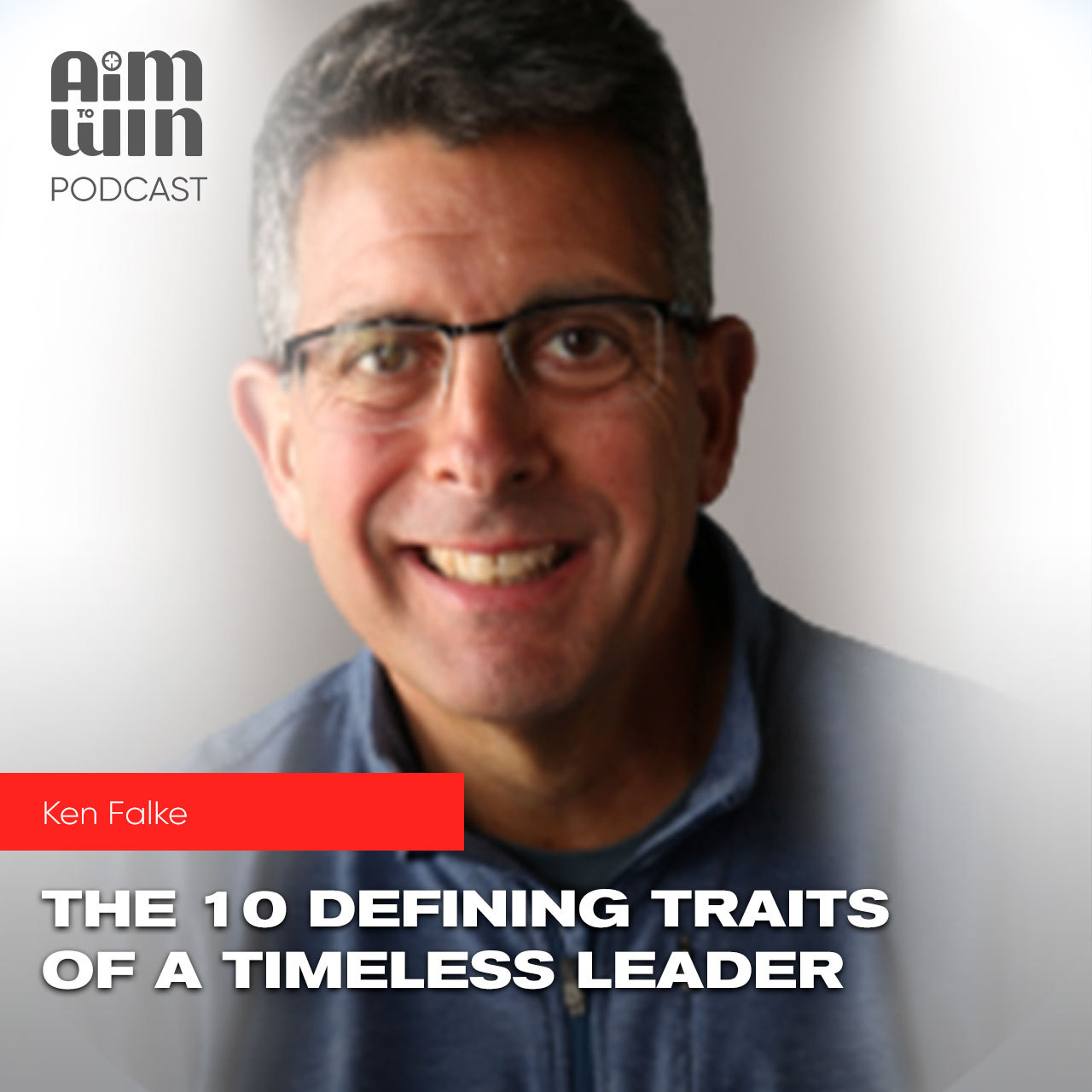Listen to the episode right here.
Mr. Falke is a 21-year combat veteran of the U.S. Navy Explosive Ordnance Disposal (EOD) community and retired Master Chief Petty Officer. Ken is highly respected around the world as an innovative and forward-thinking leader on the subjects of wounded warrior care, military and veteran transition, counterterrorism, military training, and innovative technology development.
Ken’s passion is taking care of his fellow combat veterans and their family members, and he is chairman and founder of Boulder Crest, an organization focused on the teachings of posttraumatic growth. Ken spends the majority of his time educating the public and private sectors on the issues surrounding the long-term care of our returning military personnel and their families from the last 20 years of war. As part of this effort, Ken authored Struggle Well: Thriving in the Aftermath of Trauma.
Podcast Highlights
Who is Ken Falke?
Ken’s mother died at a very young age from cancer, and he grew up living between Chicago and Pittsburgh with his father. He had some proficiency as a hockey player and did well in the local leagues, so he tried out as a professional hockey player. He didn’t make the team and afterward enlisted in the Navy.
Thinking back to the role models in his life he realized that they all had a military background, and if that helped them get to where they were it would probably help Ken too. He ended up getting recruited to be a bomb disposal specialist, and after his military career he started a company focused on the terrorist use of explosive devices. After 9/11, Ken’s company grew from 50 to 500 employees and eventually sold the business.
Writing Struggle Well and Lead Well
Ken runs a non-profit called the Boulder Crest Foundation where he helps wounded soldiers recover from things like post traumatic stress. The book is about the work they do at the foundation and weaves in the lessons and personal stories of Ken’s and his co-authors lives.
Leadership in the Age of Covid
Covid has done tremendous damage to people and businesses around the world. Ken has been reading about how leadership has to change to respond to the needs of the latest generations, but he found himself disagreeing.
Leadership is simply the practice of helping people get to a place they couldn’t get to on their own. All people are looking for two fundamental things, the opportunity to contribute and the opportunity to grow. When you put those two things together, the principles of leadership don’t change, only the context has changed.
Lead yourself first. When you think of the greatest leaders, they are great examples of human beings and live with integrity.
The second half of leadership is having a vision and creating a drumbeat around it. Everyday, the leader knows their purpose and gets people to buy into their vision and the direction they’re moving towards.
Ken is a big proponent of setting goals for the day. Having and setting goals prevent you from being derailed by daily distractions and keep you moving toward your vision.
Leadership is also composed of listening and kindness. 70% of people in the US hate their jobs, but it’s most likely that they actually hate the people they work with.
Hiring quality people is more important than ever. There are three characteristics of a quality hire: Can they do the job? Will they do the job? Will they fit in? One toxic person can destroy a team.
Leadership also requires measuring loyalty and satisfaction and building a culture that engenders both, being accountable, being courageous, and giving back to your community.
How do you hire the right people?
For the average job, Ken leverages the usual platforms like Indeed and Monster, but he also encourages his team to recommend and refer people they know who might be a good fit. Like everyone working through the Great Resignation, Ken’s company has struggled to find new quality people and leveraging each other’s networks has been a big help.
Accountability and Kindness
Accountability doesn’t necessarily mean reprimanding someone. It can also mean rewarding them for going above and beyond. Sometimes those conversations don’t go well and not everyone takes criticism easily, but being a leader means having those conversations and getting better over time.
Mixing kindness with accountability is a skill but it’s the way forward.
Links:
https://www.linkedin.com/in/ken-falke-58992036/recent-activity/

